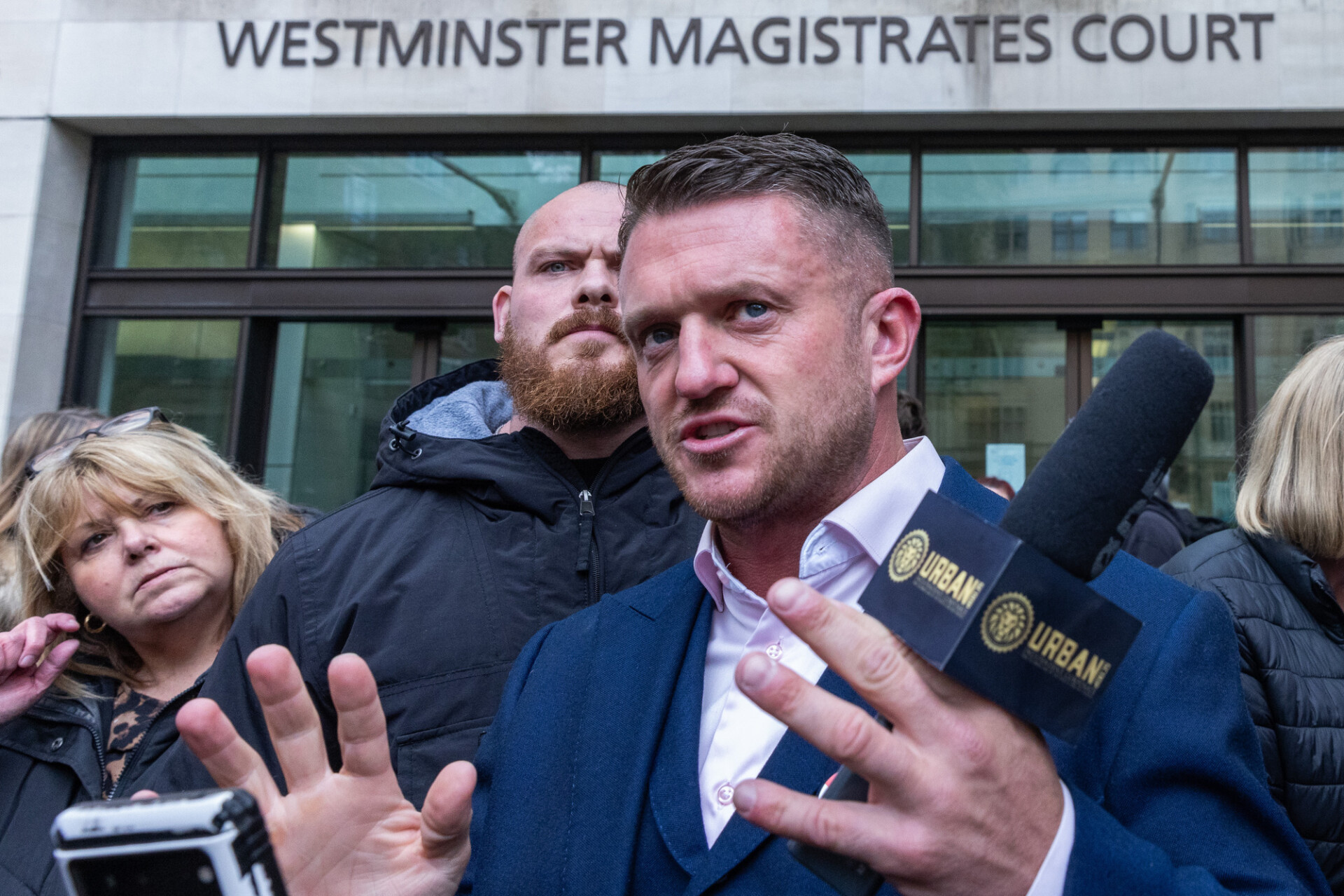The efforts of Reform UK’s leadership to professionalise their party have hit a major stumbling block: dissenters within who have expressed sympathy for Tommy Robinson and his supporters.
Reform UK party leader Nigel Farage is no stranger to condemning Robinson, who founded the English Defence League (EDL) in my hometown of Luton in response to the notorious anti-military “Butchers of Basra” demonstrations in 2009. Under leader Gerard Batten, Farage resigned from the UK Independence Party (UKIP), citing the leadership’s “obsession” with Robinson (real name Stephen Yaxley-Lennon) and “fixation with the issue of Islam”.
In the aftermath of this summer’s riots, the 60-year-old emphasised that he had nothing to do with “the Tommy Robinsons and those who genuinely stir up hatred”. His deputy, Richard Tice, echoed such sentiments, saying that Reform UK should have no relationship with Robinson — who was recently jailed for 18 months after repeating libellous claims against a Syrian refugee — and those who attended last weekend’s rally in support of him.
However, a number of high-profile figures in Reform UK have expressed their disapproval over the leadership’s anti-Robinson stance — including former co-deputy leader of the party, Ben Habib, along with the party’s candidate for the 2024 London mayoral election, Howard Cox. The former, speaking to the founder of Unite UK and self-labelled “life-long patriot” Paul Thorpe, spoke of how Reform voters were at the pro-Robinson rally, issuing a rallying call for those against the “uniparty” to band together. The latter, featuring on former GB News presenter Dan Wootton’s “Outspoken” podcast, argued that Robinson should not be in prison.
The schism emerging at the heart of Reform UK will only widen if the party fails to develop a coherent political identity. In the last general election, it won four million votes and had five Members of Parliament, but it is not necessarily clear what the party stands for. While it generally presents itself to the Right of the Conservatives on issues such as immigration, integration, and identity, it is also in these areas of public policy where Reform UK — as a fledgling political party — risks facing its most severe internal disputes.
While Nigel Farage and Richard Tice may be more in favour of a British civic nationalism based on shared values and social contribution, that may not be enough for some of Reform UK’s rank-and-file members and those who voted for the party at the last general election. With one in five Britons supporting a primarily ethnic understanding of Britishness, does Reform UK’s leadership view this pool of voters as their core base — even if it includes those who believe Tommy Robinson is a political prisoner who, in their eyes, has been silenced by the establishment? Farage himself has been anything but enthusiastic over thrusting himself into debates on ethnic Englishness, but how central is it to the politics of England’s disenfranchised Reform voters who believe that Anglo-Saxon history, identity, and culture is being erased by public institutions?
As a challenger party on the Right, there is a particular issue that Reform UK simply cannot ignore: the growing presence of Islam in modern Britain. This is further complicated by the fact that the strategic brain behind professionalising the party’s organisational structures and public image is its Muslim chairman Zia Yusuf. The Scotland-born businessman of Sri Lankan origin refers to himself as a “British Muslim patriot”, but a question for him remains: what to do about those who believe the conventional teachings of Islam are fundamentally incompatible with British liberal democracy? Do they have a political home in his party? Reform UK could differentiate itself from metropolitan liberal Tories by being a socially conservative party of the Right, appealing to God-fearing, family-oriented, community-spirited Muslims, yet this is unlikely to be accepted by a base with its fair share of demographic and cultural anxieties.
Reform UK is well positioned in the sense that we live in an era of mass public distrust in Westminster, with a widespread belief that immigration has been too high in recent times. But sensitive matters relating to Islam, integration, and national identity threaten to derail its growth as a credible and cohesive political outfit.











Join the discussion
Join like minded readers that support our journalism by becoming a paid subscriber
To join the discussion in the comments, become a paid subscriber.
Join like minded readers that support our journalism, read unlimited articles and enjoy other subscriber-only benefits.
Subscribe